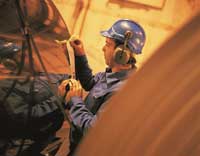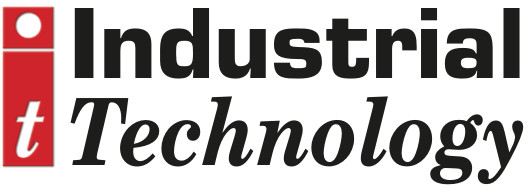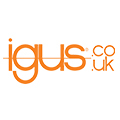
Posted to News on 24th Jun 2013, 00:00
Exporting machinery to the North American market
If you want to export your machines to the USA, then you need to ensure you have appropriate certification, as Paul Laidler of TUV SUD Product Service explains.

>Manufacturers that produce bespoke machinery for use in the USA, end-users that are re-locating existing equipment to a new facility, and those that have purchased used equipment or equipment without proper certification, must comply with local electrical safety requirements. If they do not, many local jurisdictions in North America will not allow such 'unlabelled' equipment to be installed or used at manufacturing and commercial sites within their communities.
>Any manufacturer found using unlabelled equipment may be fined, or closed down, by the USA's Occupational Health & Safety Authority (OSHA), or simply be banned by local inspectors from switching such equipment on. Also, users of non-compliant machinery put themselves at risk of liability-related lawsuits.
>To persuade such businesses to buy British or buy European, machinery manufacturers that want to export to the USA must therefore gain the appropriate certification to prove their equipment meets the correct local safety requirements. However, many businesses are confused which route they should take - should it be Nationally Recognized Testing Laboratory (NRTL) certification or Field Labelling?
>Electrical and electronic products sold in the United States must meet specific regulations and standards, and the NRTL programme is administered by OSHA's Directorate of Technical Support and Emergency Management. NRTLs are private, third-party organisations recognised by OSHA as meeting the legal requirements in the 29 CFR 1910.7 standard, when providing product safety testing and certification services.
>In brief, these requirements cover the capability, control programmes, complete independence, and reporting and complaint handling procedures to test and certify specific types of products for workplace safety. This means that an NRTL organisation must have the necessary capability both as a product safety testing laboratory and as a product certification body to ensure that machinery meets relevant safety standards and is safe for use in commercial environments.
>NRTL field evaluation services include listing, labelling and National Electrical Code (NEC) inspections. The NEC is a set of minimum requirements for safety of wiring and electrical installations, covering the installation of conductors, electric equipment, signalling and communications conductors and equipment, and fibre optic cables.
>OSHA can accept products 'properly certified' by a NRTL. By 'properly certified' it generally means: 1) the product is labelled or marked with the registered certification mark of the NRTL, 2) the NRTL issues the certification for a product covered within the scope of a test standard for which OSHA has recognised it, and 3) the NRTL issues the certification from one of its sites (ie locations) that OSHA has recognised. NRTL certification is required for many mass-produced products and involves full type-testing of product samples and ongoing audits of the factory. However, this would prove to be a very costly exercise for bespoke equipment. Field labelling is a more effective approach for machinery that is a one-off or produced in low volume. As field labelling is considered essential by purchasers in the USA, it is also essential for any machinery suppliers that want to export and sell to them.
>An evaluation of such equipment by an approved NRTL will typically take three or four days, depending on the complexity of the equipment. The first part of this evaluation is done at the machinery manufacturer's site in Europe. Once the equipment has been installed at the machinery end-user's site in the USA, the evaluation is completed and the NRTL engineer applies the field label.
>State OSHA organisations, county and municipal authorities follow the OSHA requirement by requiring electrical products (ie machinery) to be approved before the product may be used in workplaces within their jurisdiction. These authorities, who enforce safety requirements for specific locations, are referred to as AHJs (Authorities Having Jurisdiction) in the USA and have responsibility for approving equipment, equipment installations and procedures. Lists of approved products are published by organisations approved by OSHA and recognised by the AHJs, so it is imperative that both manufacturers and US-based end-users of machinery review these periodically to check if there has been any change to the equipment listed.
>Such listed equipment is subject to periodic inspections to ensure that it still meets local safety requirements and that the equipment is being used for its intended purpose. During such ad-hoc inspections, AHJs will look for this mandatory label to prove that the equipment complies with local regulations and standards.
>Another layer of complexity is the requirement to use NRTL-recognised components in equipment, including safety-critical components such as fuses and cables. If manufacturers do this, field labelling certification will be a faster and a less painful process, so it is important that end-users ensure that their supplier is doing this. While this may seem daunting, in reality most well-regarded components have dual certification, meeting both NRTL and IEC standards, so manufacturers should not find themselves in the expensive situation of designing one product for the North American market and another for EU countries.
>Manufacturers that take the appropriate action on the US field labelling requirements can dramatically improve the saleability of their machines and extend their potential market, while reducing their overall liability through compliance with the proper standards. Likewise, end-users of machinery in the USA can ensure that their site experiences no costly down-time by selecting a diligent supplier and ensuring that every machine they use meets the relevant requirements.







